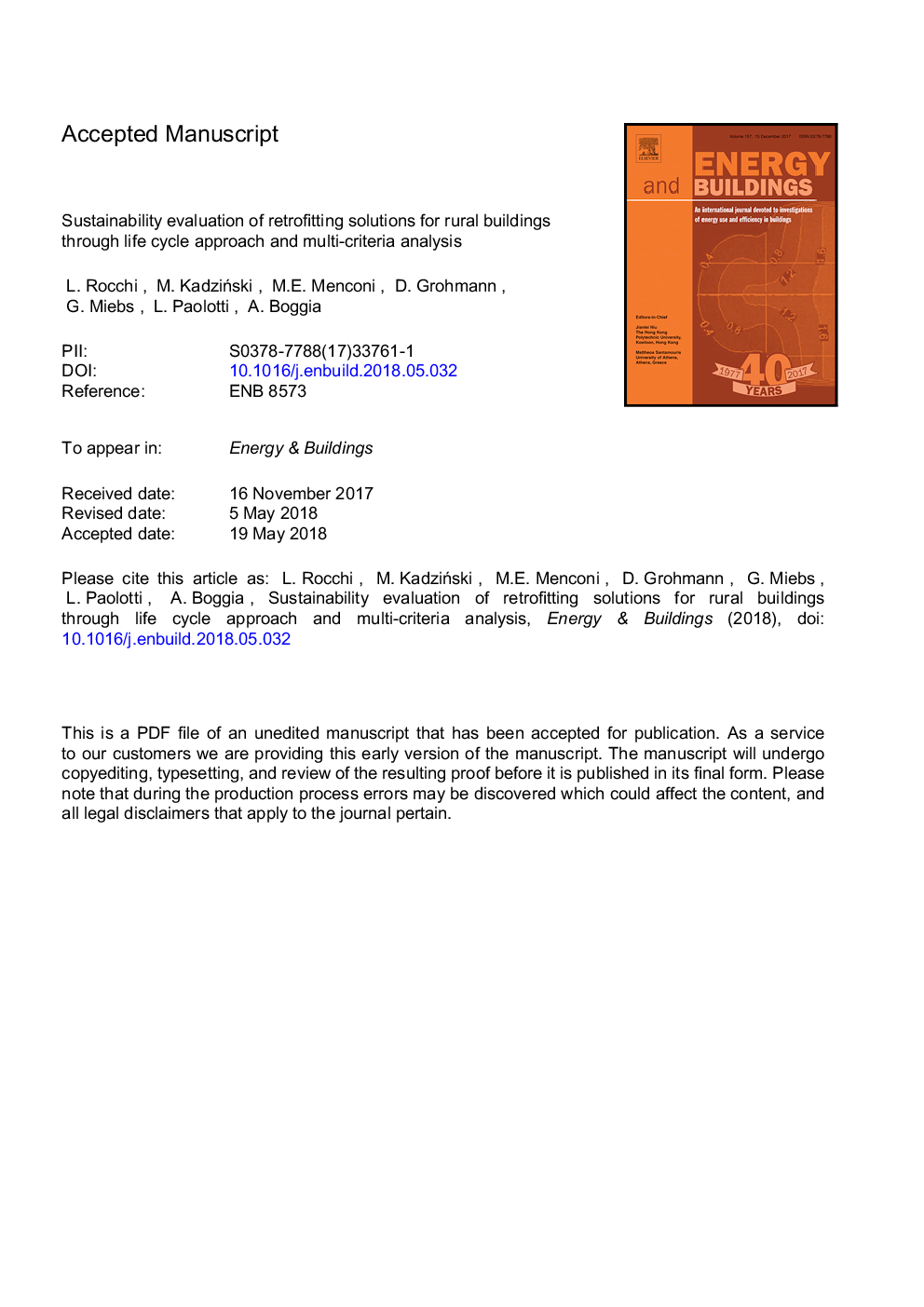| Article ID | Journal | Published Year | Pages | File Type |
|---|---|---|---|---|
| 6727452 | Energy and Buildings | 2018 | 23 Pages |
Abstract
In an international context that is faced with several environmental issues, especially in relation to energy efficiency, the finding of sustainable solutions for retrofitting existing buildings is a challenging issue. Comprehensive evaluation of the applied materials is required to understand their true impact on the environment as well as their economic suitability. Therefore, a life cycle-based approach is required. This work presents a hybrid method, including energy and comfort optimization, Life Cycle Assessment (LCA) and Life Cycle Costing (LCC) analysis, applied for retrofitting a traditional rural building and then combined together in a multi-criteria approach. The case study considers the assessment of the sustainability of several solutions for roof insulation according to seven criteria derived from the hybrid method developed: energy saving, non-renewable energy, comfort performance, global warming, ozone layer depletion, respiratory inorganics and Net Present Value. The multi-criteria approach used to combine these criteria is the Electre TRI-rC method. The results obtained with this method show the division of the materials into three categories with overall bad, medium or good performance. The stability of results is verified against a two-fold sensitivity analysis.
Keywords
Related Topics
Physical Sciences and Engineering
Energy
Renewable Energy, Sustainability and the Environment
Authors
L. Rocchi, M. KadziÅski, M.E. Menconi, D. Grohmann, G. Miebs, L. Paolotti, A. Boggia,
